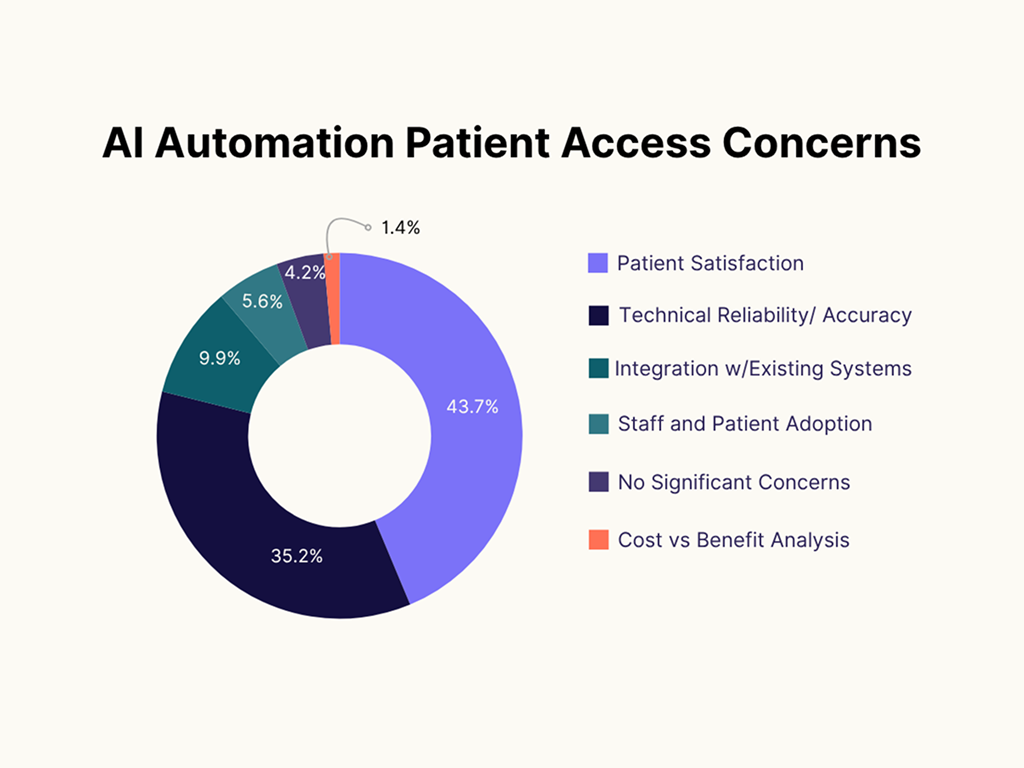

During our recent webinar hosted by the National Association of Healthcare Access Management (NAHAM), we polled attendees with this fundamental question: “What is your biggest concern about automated patient access solutions?”
Two answers stood out.
Here's what we learned from those responses:
Given that the webinar audience was healthcare access professionals, their paramount concern being patient satisfaction should not come as a surprise. What might be less obvious, however, is how well aligned this concern is with the core value proposition of well-designed AI automation.
The key implication is that successful AI solutions must be designed with patient experience at the forefront. This means prioritizing natural language processing, empathetic responses, and seamless escalation pathways to human agents when needed.
The concern about technical reliability indicates that healthcare leaders have likely witnessed or heard about automation implementations that didn't live up to the hype. This presents both a challenge and an opportunity:
The perspective of the webinar participants demonstrates that health systems aren’t opposed to the idea of call center automation, but they want to ensure that they are implementing solutions that elevate the experience for patients, create efficiencies for staff and deliver ROI for the organization.
Healthcare leaders have moved beyond questioning whether to automate patient access functions and are instead focusing on how to implement automation effectively. Organizations that prioritize patient experience and technical reliability from the outset can capture significant operational benefits, while maintaining the trust and satisfaction foundational to healthcare relationships.